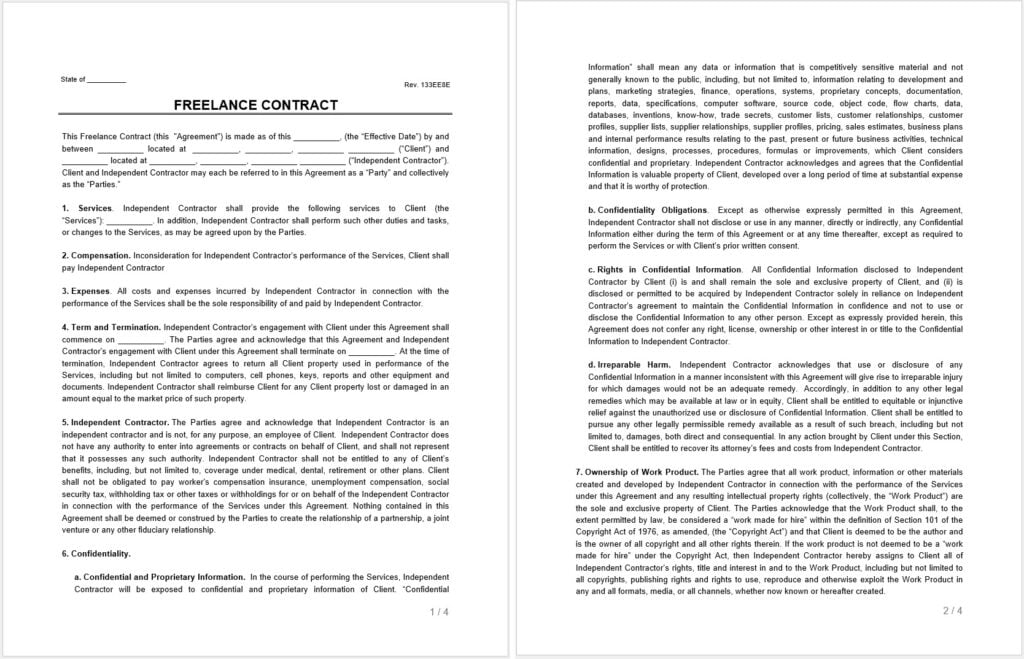
When working as an independent contractor, use a template for a freelance contract. Get paid to our multi-currency account and set the terms.
Make a contract as a freelancer
To create a basic contractor agreement that covers your freelance work, you can use one of the free templates.
Share your contract
Before you start any work for your employer, send your freelance contract to them. It’s simple for everyone to sign and agree on a standard format such as Microsoft Word (or perhaps an online tool such as Dropbox Sign).
A Freelance Contract is often used when an individual or business is hired to complete a specific project or task on a short term basis. In contrast, an employee needed to help with general business matters and on a more permanent basis.
What is Included in your Freelance Contract?
A Freelance Contract generally addresses the following basics:
– Who is being hired and by whom
– What kind of services will be provided
– When the relationship will begin and end
– Why the independent contractor is not an employee for legal or practical purposes
– How the independent contractor will be paid
WHAT IS A FREELANCE CONTRACT?
A Freelance Contract is a written contract between two parties for a specific service or project. One person or company is hiring another to help on a short term task. Unlike an employment agreement, a Freelance Contract clearly spells out why the party being hired is not an employee for legal and tax purposes.
A simple Freelance Contract usually addresses the following basic elements:
– Hiring Client: person or entity in need of special services
– Independent Contractor: person or entity hired for a project or task Services: specific description of task to be performed or work product to be delivered
– Compensation: how much and often the independent contractor will be paid
– Effective Date: when the Agreement begins and the job starts
– Termination: whether the hiring client can end the relationship at any time (i.e. “at will” contract) and how many days written notice is needed beforehand
– Fringe Benefits: the independent contractor cannot participate in any of the hiring client’s employee pension, health, vacation pay, sick pay, or unemployment benefits – Assistants: the independent contractor can hire their own assistants but will be responsible for their assistants’ expenses like Social Security taxes and Medicare
WHEN IS A FREELANCE CONTRACT NEEDED
You need a Freelance Contract whenever you hire a person or business to perform a specific task with a clear start and end date. As the name suggests, an independent contractor has more control or autonomy over how to complete a project. Further, an independent contractor often has a unique set of skills or owns equipment needed for the assigned project or task.
Without a freelance contract, the hiring client risks being treated as an employer in the eyes of the law and the IRS. Instead, a freelance contract explicitly establishes that the person or entity is not an employee.
